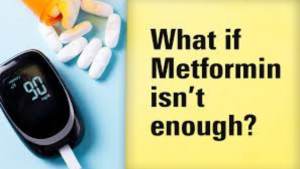Introduction: Why Blood Pressure Matters More Than You Think
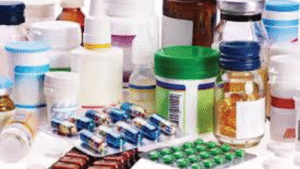
Normal blood pressure isn’t just a number your doctor rattles off—it’s the foundation of a healthy heart, steady circulation, and long-term well-being. You know what? Most people don’t even think about it until the cuff tightens around their arm, the air hisses, and the nurse calls out a reading. If it falls in the safe zone, there’s relief. If it tips into high blood pressure or hypertension, though, the mood shifts fast.
Here’s the thing: numbers alone don’t tell the whole story. The debate over herbs versus medications goes far beyond “natural” versus “pharmaceutical.” It’s about understanding blood pressure ranges, weighing side effects against benefits, and recognizing the hidden dangers of herb medication interactions. Add in the growing interest in natural ways to lower blood pressure—from garlic to hibiscus—and suddenly the choice doesn’t feel so straightforward.
That’s why resources like a herb drug interaction checker, available at www.evaluatemymeds.com, are so valuable. They help you navigate the gray areas where prescriptions and herbs overlap. And honestly? Knowing how to balance these tools could make all the difference in protecting your heart and keeping you in the safe zone of normal blood pressure.
Blood Pressure Ranges: Numbers With a Story

Let me explain how blood pressure ranges actually work. Think of them like a set of traffic lights for your health:
-
Normal blood pressure: less than 120/80 mmHg. Green light. Keep cruising.
-
Elevated: 120–129/<80 mmHg. Yellow light—you’re not in danger yet, but it’s a signal to slow down and pay attention.
-
Stage 1 hypertension: 130–139/80–89 mmHg. A warning sign that change is needed.
-
Stage 2 hypertension: 140+/90+ mmHg. Red light. Danger ahead.
Honestly, it’s tempting to shrug off those numbers if you don’t feel anything wrong. But that’s exactly the problem. Hypertension doesn’t shout. It whispers, quietly damaging arteries, stiffening vessels, and straining your heart. The American Heart Association makes it clear: ignoring the numbers is like ignoring a check-engine light on your car.
That’s why www.evaluatemymeds.com emphasizes awareness. Knowing where you fall within blood pressure ranges is the first step to making better choices—whether that means herbs, meds, or both.
Medications: The Heavy Lifters of High Blood Pressure

When doctors diagnose high blood pressure, medications are often the go-to solution. And honestly, they work. Fast. Drugs like ACE inhibitors, beta blockers, diuretics, and calcium channel blockers are well-studied and effective. Each one tackles blood pressure from a slightly different angle—relaxing vessels, slowing heart rate, reducing fluid buildup.
For someone in Stage 2 hypertension, these drugs can literally save lives. According to the Mayo Clinic, prescriptions can drastically lower the risk of stroke and heart attack.
But let’s not pretend they’re perfect. Fatigue, dizziness, and frequent bathroom trips are common side effects. And the idea of taking pills every day for life can feel overwhelming. Still, for many people, medications are the fastest and safest way back to normal blood pressure.
And if you’re on medications but considering supplements, don’t guess. Use the herb drug interaction checker at www.evaluatemymeds.com before adding anything new.
Herbs: Nature’s Slower Route

Now, let’s talk herbs. Garlic, hibiscus, hawthorn, ginger—these aren’t exotic remedies. They’re items you might find in your pantry or tea cabinet. And they’ve shown promise as natural ways to lower blood pressure.
-
Hibiscus tea has been linked to modest drops in systolic pressure.
-
Garlic may help blood vessels relax.
-
Hawthorn has roots in traditional medicine for heart health.
-
Ginger supports circulation and digestion.
There’s something reassuring about herbs. They feel natural, familiar, even comforting. You can sip hibiscus tea in the evening, or add garlic to your pasta sauce.
But here’s the catch: herbs are unpredictable. One batch of tea may be strong, the next weak. Supplements vary in quality, and not all are tested. For mild hypertension, herbs may help support normal blood pressure. But if your blood pressure ranges are in Stage 2, herbs alone won’t cut it.
That’s why www.evaluatemymeds.com suggests using herbs as part of a broader plan, ideally guided by a professional.
Herb Medication Interactions: The Hidden Risk
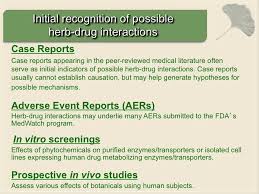
You know what trips people up? Assuming herbs are always harmless. But mixing herbs with prescriptions can create dangerous herb medication interactions.
-
Garlic supplements can thin the blood, which is risky if you’re on anticoagulants.
-
St. John’s Wort may reduce the effectiveness of blood pressure drugs.
-
Hibiscus can lower pressure too much when combined with certain medications.
This is where a herb drug interaction checker becomes essential. Tools like the one at www.evaluatemymeds.com act as early warning systems, flagging potential risks.
Still, no online tool replaces professional advice. Pharmacists and doctors can put your entire health picture into perspective. If you’re managing high blood pressure with both herbs and meds, a professional check-in is non-negotiable.
Pills vs. Plants: Is It Really Either/Or?
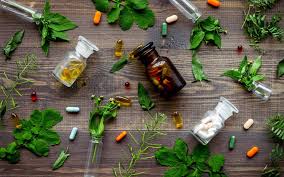
So, which is better? Herbs or meds? Honestly, it’s the wrong question. It’s not a boxing match. It’s more like comparing a wrench to a hammer—they both matter, just for different jobs.
-
Medications: powerful, fast, and often necessary for severe hypertension.
-
Herbs: gentler, slower, and supportive as natural ways to lower blood pressure.
-
Risks: meds bring side effects, herbs bring herb medication interactions.
Here’s the thing—sometimes the smartest approach is both. With the right medical guidance and tools like the herb drug interaction checker, you can balance pills and plants safely.
Lifestyle: The Foundation You Can’t Ignore
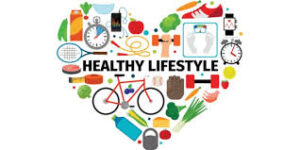
Let me digress for a moment. Because herbs and meds matter, but lifestyle is the bedrock. Without it, everything else is patchwork.
-
Diet: The DASH eating plan is proven to lower blood pressure—think veggies, fruits, whole grains, and low sodium.
-
Exercise: 30 minutes of movement daily—walking, biking, even dancing—can help regulate blood pressure ranges.
-
Stress: Ever felt your pulse after an argument? Chronic stress pushes high blood pressure higher. Meditation, yoga, or gardening helps.
-
Habits: Reducing smoking, caffeine, and alcohol supports stable blood pressure.
-
Weight: Losing even five pounds can bring you closer to normal blood pressure.
Lifestyle isn’t glamorous, but it’s powerful. That’s why www.evaluatemymeds.com combines medication reviews with lifestyle resources—to cover the whole picture.
When to Call in the Pros
Here’s the truth. If your readings are in Stage 2 hypertension (140+/90+), it’s time for professional care. Herbs may support, but they can’t handle the load alone.
A doctor can evaluate your blood pressure ranges, adjust meds, and check for risks. A pharmacist can use tools like the herb drug interaction checker to prevent mistakes. And www.evaluatemymeds.com can help you review your prescriptions and supplements safely.
Wrapping It Up: Balance, Not Battle
So, which wins—herbs or medications? You know what? It’s not about picking a winner. Medications provide speed and reliability. Herbs bring tradition and gentle support. Lifestyle provides the foundation.
The real risk is ignoring herb medication interactions or skipping medical guidance. The real solution is using a herb drug interaction checker, talking to professionals, and making informed choices.
Because the goal isn’t choosing sides—it’s protecting your heart, staying safe, and keeping your numbers in the healthy zone of normal blood pressure. And with resources like www.evaluatemymeds.com, you’ve got support every step of the way.
Frequently Asked Questions (FAQs)
1. What is considered normal blood pressure?
Normal blood pressure is generally defined as a reading below 120/80 mmHg. This range indicates that your heart and arteries are functioning without extra strain. If your numbers are consistently above this range, it may signal hypertension and should be discussed with a doctor.
2. Can herbs replace medications for high blood pressure?
In most cases, no. While herbs such as garlic, hibiscus, and hawthorn may offer natural ways to lower blood pressure, they are not strong enough to manage moderate to severe hypertension on their own. Medications are usually needed when blood pressure ranges climb into higher levels. Herbs can, however, play a supportive role alongside lifestyle changes.
3. What are herb medication interactions and why do they matter?
Herb medication interactions occur when a natural herb affects the way a prescribed drug works in your body. For example, garlic can increase bleeding risk if combined with blood thinners, and St. John’s Wort can make some blood pressure drugs less effective. That’s why it’s important to use a herb drug interaction checker and talk with a healthcare professional before mixing the two.
4. How can I safely check for herb drug interactions?
The easiest way is to use a herb drug interaction checker—an online tool that helps identify potential conflicts between herbs and prescriptions. However, these tools aren’t foolproof. Always confirm results with a doctor or pharmacist, especially if you’re managing high blood pressure with both prescriptions and supplements.
5. What are the best natural ways to lower blood pressure without medications?
The most effective lifestyle strategies include: following the DASH diet (low sodium, high in fruits and vegetables), regular exercise, stress management, limiting alcohol, and maintaining a healthy weight. These natural ways to lower blood pressure can support herbs and medications, and in some cases, may even help restore normal blood pressure on their own.
6. When should I seek professional help for hypertension?
You should seek medical guidance if your blood pressure ranges consistently fall into Stage 1 or Stage 2 categories (above 130/80 mmHg). People with existing health conditions like diabetes or heart disease should get help even sooner. A doctor can evaluate whether medications, herbs, or a combination are needed to control high blood pressure safely.
🌐 External Link:
-
American Heart Association – Blood Pressure Readings
-
Mayo Clinic – High Blood Pressure (Hypertension)
-
National Institutes of Health (NIH) – Dietary Approaches to Stop Hypertension (DASH)
-
Harvard Health Publishing – Herbal Supplements and Heart Health
-
MedlinePlus – Drug-Herb Interactions
🏠 Internal Link:
-
Herb-Drug Interaction Checker – https://evaluatemymeds.com/
-
Hypertension Resources – https://evaluatemymeds.com/index.php/blog/
-
Medical Terms Made Easy – https://evaluatemymeds.com/index.php/glossary-simple-medical-terms/
-
Understanding your medical reports – https://evaluatemymeds.com/index.php/understand-my-medical-document/






